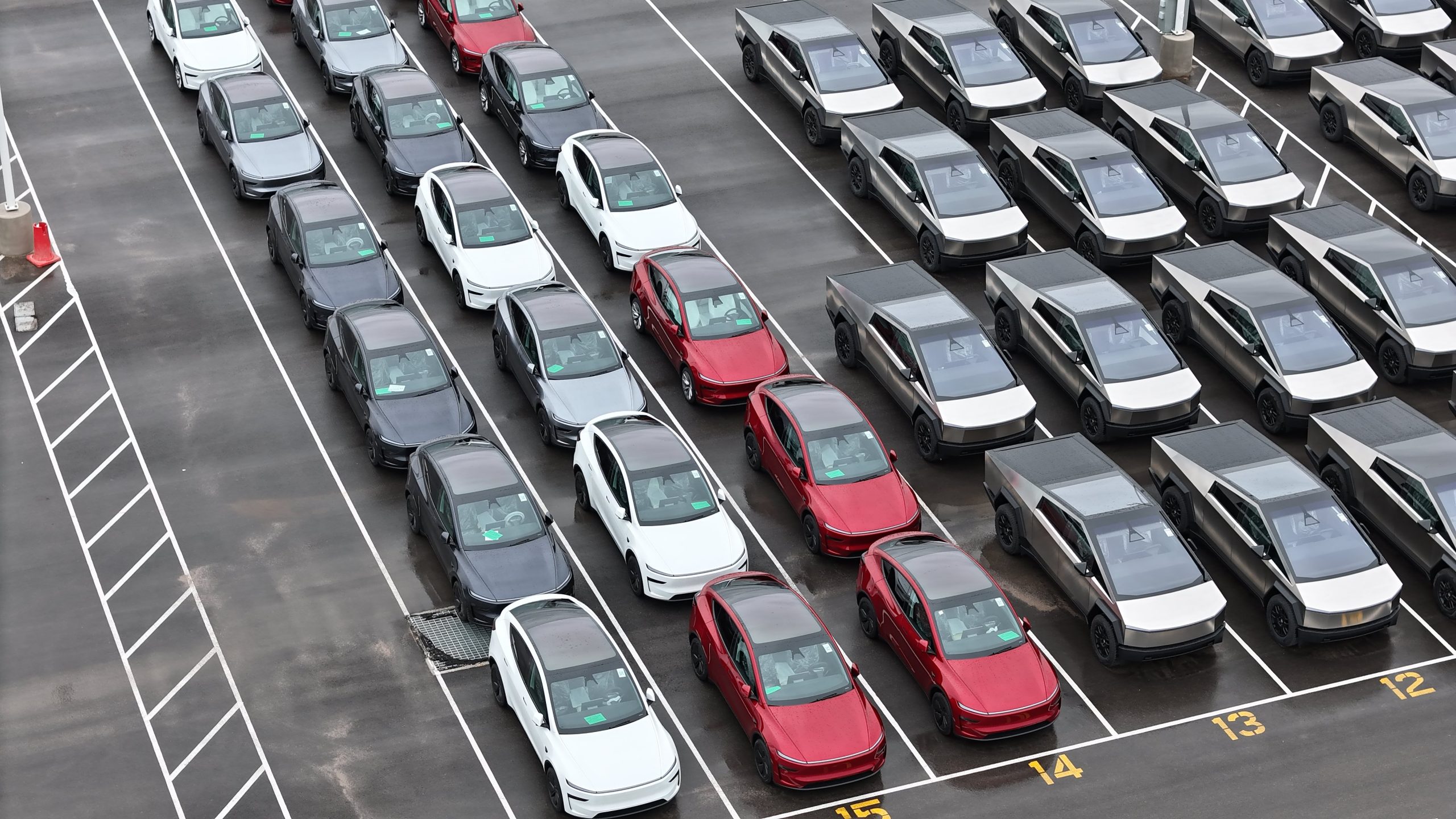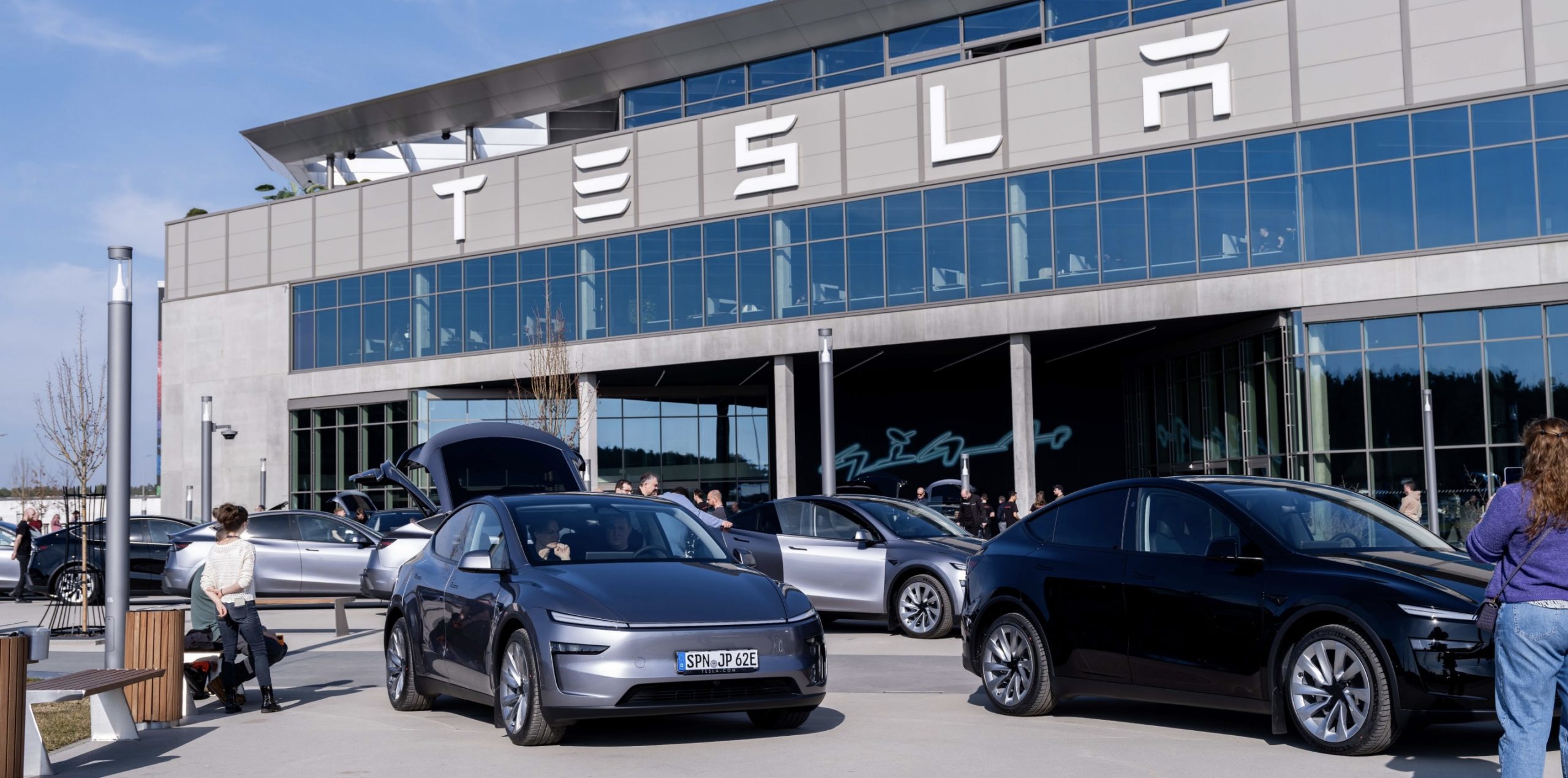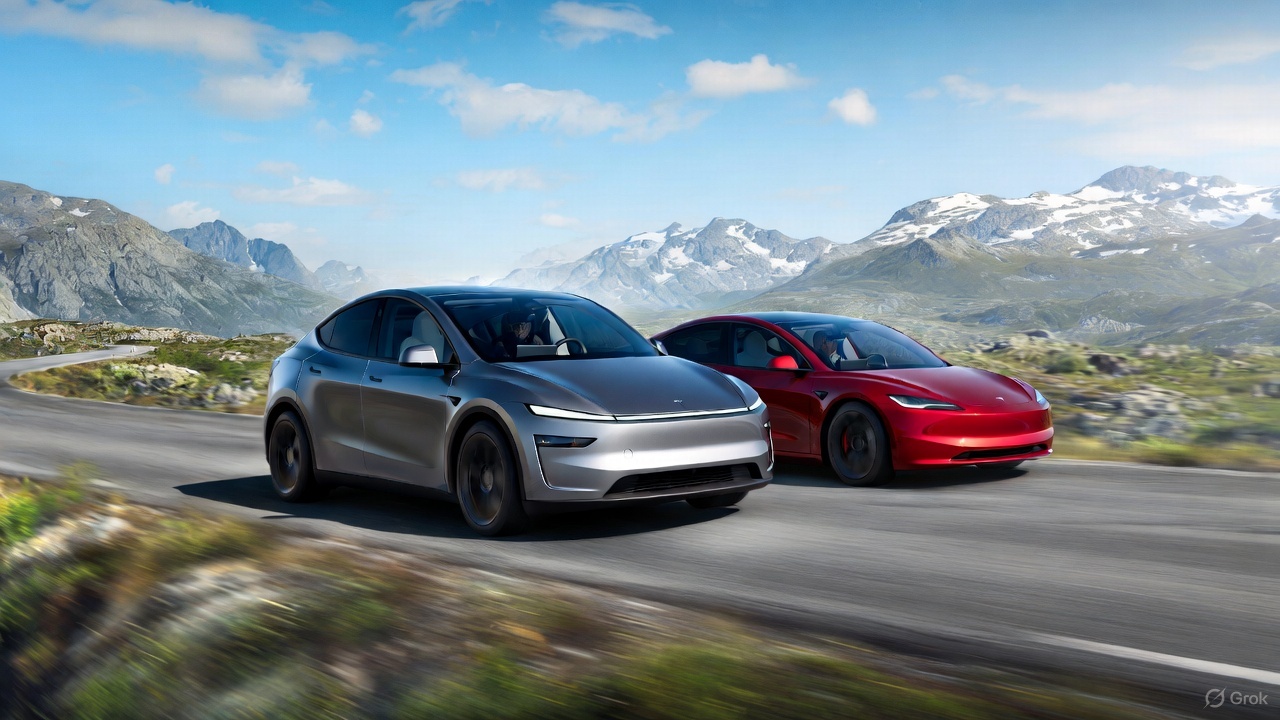Tesla
Tesla’s price target gets cut by Wells Fargo analyst: Barron’s
Analyst Colin Langan slashes TSLA’s target to $130, citing weak deliveries Could Model Y Juniper & a cheaper Tesla turn things around?

Wells Fargo analyst Colin Langan cut his Tesla price target from $135 to $130.
Langan maintained his Sell rating on TSLA shares. The Wells Fargo analyst cut his first-quarter delivery estimates for Tesla to 360,000 vehicles, noting that the company’s price cuts on vehicles are having “diminishing benefits.” In the first week of March, Goldman Sachs also lowered its delivery estimates for Tesla to 375,000 units. On March 5, 2025, the consensus for Tesla’s Q1 2025 deliveries was 426,000 vehicles.
Langan commented that the electric vehicle (EV) competition in China is intense. Meanwhile, in the United States, Langan expects the federal purchase tax credit worth up to $7,500 to end.
“Post-Trump/Elon duo highs, investors are starting to agree that there is no fun in the fundamentals,” noted Langan. He added that some of the “razzle dazzle momentum” in TSLA stocks after Trump won the U.S. presidential election was spoiled by the company’s weakening car business.
Despite his bleak outlook for Tesla in the first quarter, Langan sees some light in the company’s near future. He predicted that Tesla deliveries would rebound to 450,000 vehicles in the second quarter, thanks to the 2025 Model Y Juniper. Morgan Stanley analyst Adam Jonas predicts TSLA stocks could rebound by 90% within the next year.
The Wells Fargo analyst also predicts that Tesla might launch its “affordable Model 2.5,” which could boost deliveries. Sources in China shared that Tesla plans to release a cheaper Tesla Model Y variant, similar to the more affordable Model 3 it released in Mexico.
Langan’s full-year 2025 delivery estimate for Tesla is a little under 1.7 million vehicles, slightly below the company’s delivery numbers in 2024. He added that “if [anti-Elon Musk] protests continue, [the] downside could be worse.”

News
Tesla Giga Berlin head calls out Handelsblatt’s claimed 2025 production figures
Andre Thierig, Senior Director of Manufacturing at Giga Berlin, published a detailed post on LinkedIn challenging several points made in the publication’s coverage of the Grünheide facility.

Tesla Gigafactory Berlin’s plant manager has publicly pushed back against recent reporting by German business publication Handelsblatt, which cited reportedly erroneous data about the factory’s production figures and financial performance.
Andre Thierig, Senior Director of Manufacturing at Giga Berlin, published a detailed post on LinkedIn challenging several points made in the publication’s coverage of the Grünheide facility.
In his LinkedIn post, Thierig called out Handelsblatt’s claim that 149,000 Model Y vehicles were produced at Giga Berlin in 2025. He noted that “the article is simply filled from front to back with false information and claims!
“I have to set the record straight here! In the last article about Tesla in Grünheide, the Handelsblatt speaks e.g. of 149,000 Model Ys built in 2025. WRONG!
“In 2025, we again produced over 200,000 vehicles. And this despite the fact that we stopped production in Q1 for the changeover to the new Model Y and then ramped it up again to 5,000 units per week over several weeks,” Thierig wrote.
He added that production increased each quarter in 2025 compared to the prior quarter and stated that more than 700,000 Model Y units have been produced at Grünheide since manufacturing began in 2022. For the first quarter of 2026, he stated that the factory is planning another production increase compared to the fourth quarter of 2025.
Thierig also questioned Handelsblatt’s reported 0.74% profit margin, writing that how the publication calculated the figure “remains reserved for their secret ‘calculation skills.’”
Beyond production data, Thierig highlighted Tesla’s broader footprint in Germany, stating that the company has invested more than €5 billion in Grünheide since 2020 and created nearly 11,000 permanent, above-tariff jobs. He added that Tesla is currently investing nearly €100 million into battery cell production at the site, which is expected to generate several hundred additional positions.
In a follow-up comment, Thierig noted that he did communicate with the publication’s editor-in-chief in an effort to “start fresh,” but he was informed that Handelsblatt’s current approach works just fine.
“Last year, I spoke to a representative of the Handelsblatt editor-in-chief and suggested that we “start anew” again. Handelsblatt turned down this offer on the grounds that their current approach works well for them,” Thierig noted.
Sönke Iwersen, Head of Investigative Research at Handelsblatt, responded to Thierig’s post, stating that the newspaper’s figures were based on Tesla’s own annual financial statements for the Grünheide entity.
He cited reported 2024 revenue of €7.68 billion, operating profit of €156.8 million, and net income after taxes of €55.6 million. Iwersen also referenced prior public comments from Elon Musk about Cybertruck demand, noting the gap between reported pre-orders and subsequent annual sales figures.
He also stated that the works council election eligibility figures Giga Berlin had dropped to 10,703 employees today from 12,415 two years ago.
“As far as production figures are concerned, these are figures from the data service provider Inovev. This is also stated in the article. Please compare this with Elon Musk’s information on demand for the Cybertruck. According to Musk, there were one million pre-orders. In the first year, 39,000 units were sold, in the second year 20,000. How can this be explained? With a million pre-orders?
“You yourself have repeatedly pointed out in recent months that no jobs would be cut in Grünheide because Tesla is different from the competition. Now a new works council is being elected in Grünheide. 10,703 people are eligible to vote. Two years ago, 12,415 people were eligible to vote. So there were exactly 1712 fewer from 2024 to 2026,” Iwersen wrote.
News
Tesla back on top as Norway’s EV market surges to 98% share in February
Tesla became Norway’s top-selling brand with 1,210 registrations, representing a 16.6% share.

Tesla reclaimed the top spot in Norway’s auto market in February as electric vehicles captured more than 98% of all new car registrations.
The rebound follows a sharp January slump triggered by VAT rule changes, which prompted numerous car buyers to advance their purchases into late 2025.
As per data from the Norwegian Road Traffic Information Council (OFV), 7,127 new electric vehicles were registered in February, representing a 98.01% market share. Fossil-fuel vehicles and hybrids accounted for just 2% of total new registrations.
Total new car registrations reached 7,272 units in February, hinting at a rapid recovery after January sales fell nearly 75% year-over-year following VAT adjustments.
OFV Director Geir Inge Stokke noted that similar patterns were observed after previous VAT changes in 2022, with demand temporarily weakening before normalizing, as noted in an Allt Om Elbil report.
“We are now seeing signs that the market is returning to a more normal level of activity, which we also experienced after the VAT change in 2022. At that time, changes in demand led to a weak start to 2023. We have seen the same pattern this year,” he said.
Amidst this trend, the Tesla Model Y made a strong comeback in the domestic market. After an unusually weak January that saw the Tesla Model Y drop to seventh place, the model returned to the top of Norway’s sales chart in February.
The Model Y recorded 1,073 registrations, giving it a 14.8% market share for the month. Tesla also became Norway’s top-selling brand with 1,210 registrations, representing a 16.6% share. Toyota followed with 941 registrations, while Volkswagen, Volvo, and Skoda rounded out the top five brands.
The February data suggests that Tesla’s January dip was tied more to timing effects around VAT adjustments than to structural demand shifts. It would then be interesting to see how the rest of the year unfolds for Tesla, particularly as the company pushes for the release of its Full Self-Driving (Supervised) system to Europe this year.
News
Tesla arson suspect pleads guilty, faces up to 70 years in prison
The update was announced by the U.S. Attorney’s Office for the District of Nevada.

A Las Vegas man has pleaded guilty to federal arson charges tied to a March 2025 attack on a Tesla Collision Center in Nevada.
The update was announced by the U.S. Attorney’s Office for the District of Nevada.
According to court documents, on March 18, 2025, Paul Hyon Kim spray-painted the word “RESIST” on the front entrance of the Tesla Collision Center before damaging the facility and multiple vehicles.
Federal prosecutors stated that Kim used a PA-15 multi-caliber firearm equipped with a .300 BLACKOUT upper receiver and a 7.62mm silencer to shoot out surveillance cameras. He then fired multiple rounds into Tesla vehicles on the property.
Authorities stated that Kim later threw three Molotov cocktails into three separate Tesla vehicles. Two of the devices exploded and ignited the vehicles, while a third did not detonate. In total, five Tesla vehicles were damaged in the incident.
Kim pleaded guilty to two counts of arson of property used in interstate commerce, one count of attempted arson of property used in interstate commerce, and one count of unlawful possession of an unregistered firearm classified as a destructive device.
The mandatory minimum sentence for the charges is five years in federal prison, though the total maximum statutory penalty is 70 years, as per a release from the United States Attorney’s Office of the District of Nevada.
Sentencing is scheduled for May 27, 2026, before U.S. District Judge Jennifer A. Dorsey. A federal judge will determine the final sentence after considering the U.S. Sentencing Guidelines and other statutory factors.
The case was investigated by the FBI, the Bureau of Alcohol, Tobacco, Firearms and Explosives, and the Las Vegas Metropolitan Police Department, with assistance from the Clark County Fire Department.








